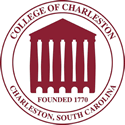
Glenn McConnell is starting to enjoy being president of the College of Charleston.
“I couldn’t have given you that answer in July,” says the longtime former West Ashley senator who grudgingly became lieutenant governor in 2012 before taking over the college.
Within 30 minutes of beginning as new president last year, members of the basketball team told him they didn’t want to play for the coach. That kerfuffle took the majority of his time for almost two months before it got straightened out, McConnell said in a Friday interview.
“There are so many moving parts [to this job] that it’s hard to have the time to move some big things forward,” he said. “You get bogged down in the micro before you can get to the macro.”
 But in less than eight months, McConnell has been at the helm for some big wins.
But in less than eight months, McConnell has been at the helm for some big wins.
The biggest may be the fall approval by the state Commission on Higher Education to operate a research university within the College of Charleston. Usually a university engulfs a college. But McConnell said because former president Harry Lightsey had the foresight to set up a university component under the college, the CHE approval now allows an unused structure to mature as a research university. In turn, that will allow it to boost academics, grant more doctoral degrees and access federal research grants.
“Using the institution that he created, we threaded the eye of the needle,” McConnell said. “We set up a research university within the College of Charleston.”
With that designation, the college can attract new donors who want to help to establish advanced courses “from a competitive economic standpoint that this region needs to have for development and employment.”
By pumping up academic muscle in areas like computer science, information management and supply chain logistics, the college will be able to provide companies with the 21st century local talent they need here, he said. At the same time because the college is the top dog over the new university structure, “we preserve the best of who we are,” McConnell said. “It also sets the college up where we shape our future and don’t get shaped by it.”
In the weeks ahead, McConnell will be on the road meeting with donors to try to raise more money for the college as it nears completion of a $125 million comprehensive campaign. So far, it has raised more than $114 million, the president said.
Half of the money will go to scholarships, which McConnell said he planned to use to make the college more accessible, affordable and inclusive.
“If you make it affordable and accessible, then we pick up students from lower socioeconomic levels who could not be here,” he said. “I want the College of Charleston to be a place so if you’re from Branchville or Boston, you can come here.
“Scholarships are life-changing. They can completely change the trajectory of a person’s life.”
McConnell envisioned a future campus that looked more like the state of South Carolina, a third of which is comprised of non-white minorities. The college today has a 15 percent minority population, but only about 6 percent of the student body is African American.
Applications from black students are up about 15 percent this year, a trend McConnell said he wanted to see continue. In fact, he said the college is planning to launch a pilot program in seven area counties to automatically admit anyone who graduates in the top 10 percent of his or her high school class.
Running a college is a lot different from the partisan environment of running the state Senate, which McConnell did for years. It’s an executive role, rather than a legislative one.
But some of the life lessons he’s had — running a small business, being a lawyer and having to listen to all sides of issues to try to get compromise — are paying off in Randolph Hall, where the president’s office is located.
“I feel like the school is on the move and we’re making progress.”


